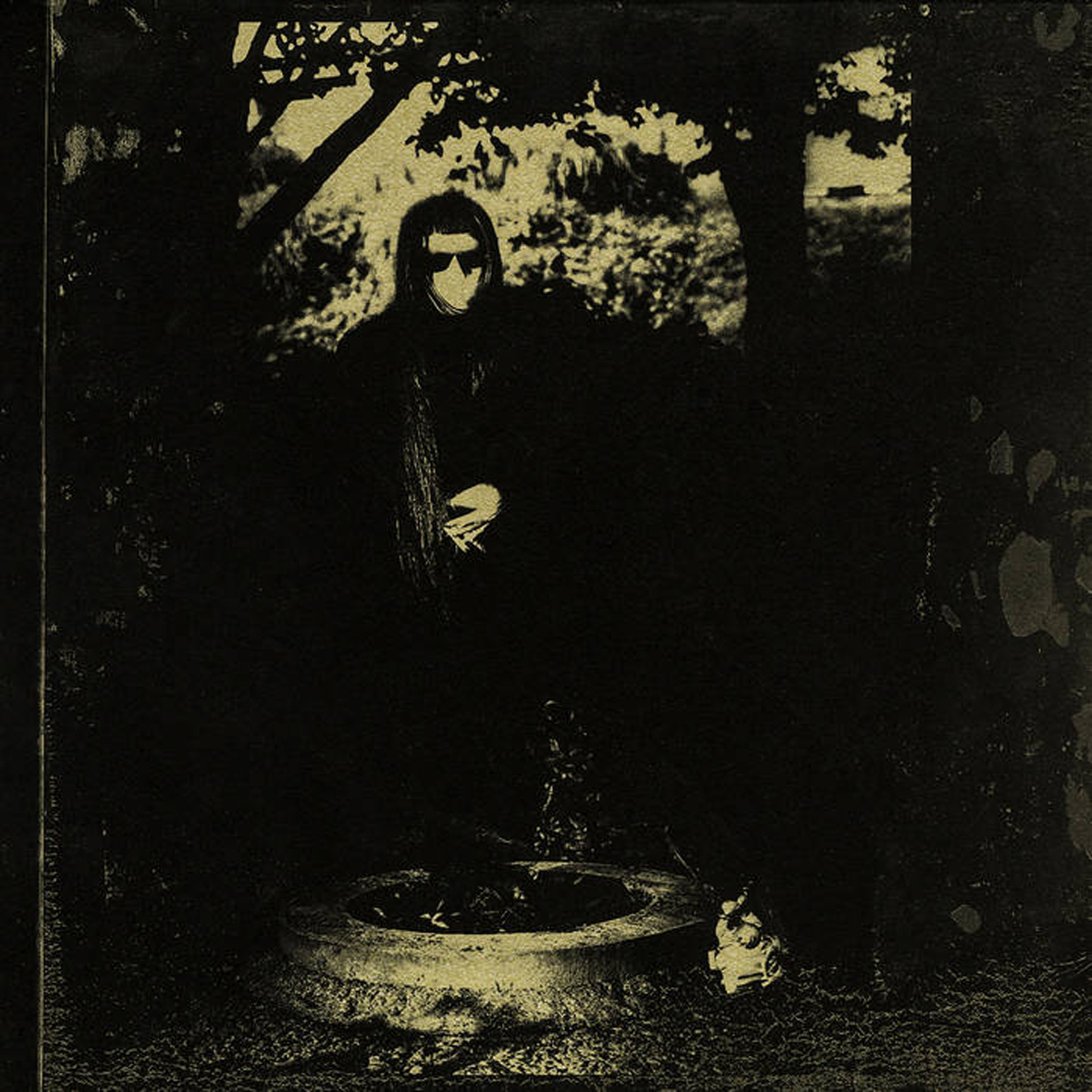Keiji Haino, "Watashi Dake?"
 This is the debut release from Peter Kolovos's Black Editions, an imprint embarking upon the ambitious and necessary task of reissuing classic albums from Japan’s legendary and defunct P.S.F. label.  Naturally, Kolovos wanted to start with a bang, making Watashi Dake? an obvious choice: originally released back in 1981, it is the first solo release from the mercurial and iconic Keiji Haino.  Spontaneously composed at night in a completely dark studio (presumably while wearing sunglasses), these hermetic, haunted, and idiosyncratic songs make for quite a challenging and uncomfortable listen, but that is precisely the point: for better or worse, there is nothing else on earth quite like Watashi Dake?
This is the debut release from Peter Kolovos's Black Editions, an imprint embarking upon the ambitious and necessary task of reissuing classic albums from Japan’s legendary and defunct P.S.F. label.  Naturally, Kolovos wanted to start with a bang, making Watashi Dake? an obvious choice: originally released back in 1981, it is the first solo release from the mercurial and iconic Keiji Haino.  Spontaneously composed at night in a completely dark studio (presumably while wearing sunglasses), these hermetic, haunted, and idiosyncratic songs make for quite a challenging and uncomfortable listen, but that is precisely the point: for better or worse, there is nothing else on earth quite like Watashi Dake?
The most apt analogy that I can come up with for Keiji Haino’s career is that it is like someone handed a drunk, blindfolded bodybuilder a baseball bat and shoved him towards a piñata: it is messy, unpredictable, and sometimes a bit terrifying.  However, it is also almost always a compelling spectacle and I know that when (and if) he finally connects, it will be a hugely satisfying event.  To my ears, Haino connects beautifully on Watashi Dake? , though not until the 29-minute storm of feedback that closes the album ("Devotion").  Curiously, "Devotion" was not even part of the original album (released on Takafumi Sato's Pinakotheca label in 1981), but was added for the 1993 P.S.F. reissue.  It is also absent from the current vinyl reissue (it did not fit, obviously), but Black Editions got around that by including it in the download code that comes with the vinyl.  It is admittedly quite bizarre that an amazing longform piece which absolutely lays waste to the rest of the album did not make the original cut, but there were some interesting mitigating conflicts and philosophies that led to that state of affairs.  For one, "Devotion" was recorded live and Sato wanted Haino to make a proper studio album, which was something he never had any interest in ("for me studios are dead space").  That said, Haino did manage to include a couple of shorter live pieces on the formal album (some of the more memorable moments, in fact), so I guess both parties compromised a bit.  More significantly, Haino was quite intent on subverting everyone’s expectations for what a Keiji Haino solo album might sound like: if people associated him with long, howling guitar meltdowns, he wanted to do the exact opposite and make a quiet and intimate album of short pieces for just guitar and voice ("like an antithetical Keiji Haino").
Haino's vision was not purely contrarian, however, as he has stated "I had this really strong conviction that I wanted to record a 1920s country blues record that hadn’t been made yet."  Of course, after being filtered through Haino's aesthetic, the results are entirely recognizable as such.  That is especially true of the vocal-only opening "My Refuge," which sounds like a bizarre and cathartic performance art piece filled with primal howls, choked sobs, moans, exhalations, and odd silences.  As for the more musical pieces, they were significantly shaped by the darkness and improvisatory nature of the recording sessions, as Haino noted "I had this idea that I wanted to have to grope blindly on the guitar to find each individual sound, starting from nothing."  On one level, that is exactly what Watashi Dake? sounds like, albeit transfigured by Haino's sheer unconventionality and wild-eyed intensity.  He certainly gets some cool sounds in the process though, like the deep, seasick bowed strings of "More More More," the snarling and maniacal industrial repetition of "I Can't Do It Properly," and the weird and slippery sliding notes of "Bring To An End." For the most, however, these pieces are all brief, stark, discordant, and fitfully unfolding vignettes.  As such, they have limited appeal as "music," but instead provide a voyeuristic glimpse of a formidable artist wrestling with the void in real-time.  Obviously, the entertainment potential for the latter approaches nil, though it is understandably an exquisite treat for connoisseurs of underground music's darker and more arcane corners.  I am arguably part of that demographic, but the bizarre otherness of the album’s original content is an entirely different experience than the visceral firepower of "Devotion": I like unfiltered, daring artistic expression just fine, but "face-melting force of nature" will always trump "intriguing experiment."
Regardless of my feelings about the actual album, Black Editions definitely outdid themselves with this reissue, treating Watashi Dake? like the absolute Holy Grail of the Japanese underground: interviewing Haino, translating the lyrics, and packaging the album as Haino originally envisioned it (with metallic gold and silver artwork and a black-on-black lyric sheet). That reverence is certainly warranted to some extent, as this album was indeed an unprecedented magnum opus in its time: after playing with Haino in Japan, Fred Frith excitedly bought 15 copies to blow the minds of his friends (who included John Zorn and Bill Laswell).  Hearing it for the first time in 2017, however, it merely feels like an intensely personal and idiosyncratic experiment by an artist who is arguably better at unleashing hellish squalls of noise.  In a way, Haino’s freeform and discordant approach to songcraft paralleled Jandek's concurrent work from half a world away (albeit electrified and considerably more theatrical), though Haino sounds less like a lonely suicide than the sort of person who might publicly immolate himself as a conceptual art statement (an important distinction).  Back in 1981, however, almost no one would have had any reference points at all for what Haino laid to tape here.  I am not sure if that necessarily makes Watashi Dake? an ur-text that continues to resonate throughout the underground decades later, as few have any desire to emulate this album's strange and dark trip, but this album does legitimately still sound like it was dropped here from another dimension that has had virtually zero musical influence from our own.
 



